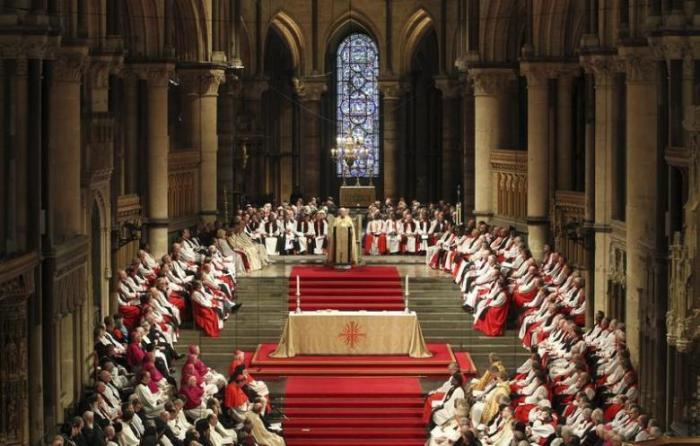Church of England Votes to Affirm Transgender People; Top Bishop Says LGBT 'Not a Sin'

The General Synod of the Church of England has officially passed a motion welcoming and affirming transgender people to the church. A top bishop also declared that being LGBT is "not a sin."
"That this Synod, recognizing the need for transgender people to be welcomed and affirmed in their parish church, call on the House of Bishops to consider whether some nationally commended liturgical materials might be prepared to mark a person's gender transition," the motion that passed on Sunday reads.
As the official CofE website points out, the vote went overwhelmingly in favor of welcoming transgender people, with 30 for the motion and two opposed in the House of Bishops; 127 who backed the motion and 28 against it in the House of Clergy; and 127 for and 48 against in the House of Laity.
The Rev. Christopher Newlands of the Blackburn Diocesan Synod said at the beginning of the assembly: "I hope that we can make a powerful statement to say that we believe that trans people are cherished and loved by God, who created them, and is present through all the twists and turns of their lives."
During the synod's weekend session, the church body also backed a motion calling for a ban on what critics have called "conversion therapy" for people with unwanted same-sex attractions.
The Archbishop of York, the Most Rev. John Sentamu, who is one of the most senior officials in the CofE, said that "theology has to be done" by the House of Bishops, but "it can be done very quickly."
The Bishop of Liverpool, the Right Reverend Paul Bayes, declared earlier: "As the world listens to us, the world needs to hear us say that LGBT orientation and identity is not a crime."
"LGBT orientation and identity is not a sickness. And LGBT orientation and identity is not a sin," Bayes added, according to BBC News.
The Archbishop of Canterbury, the Most Rev. Justin Welby, said that he continues upholding the church's definition of marriage as between one man and one woman.
A number of church bodies within the Anglican Communion have challenged that definition, including The Scottish Episcopal Church, which became the first mainstream Christian denomination in the U.K. to approve same-sex marriage in June.
Concerns from Anglican conservatives over the pro-LGBT direction they say the CofE has taken has led groups such as the Global Anglican Future Conference to put forward their own "missionary bishop" to oversee traditional Anglican parishes.
GAFCON has said that the Western world is "abandoning Christian heritage," and warned that a number of U.K. churches are "under pressure to compromise clear Christian teaching in the face of secular humanist philosophy.
"In some cases, the Gospel appears to have been watered down or even denied. Even some faithful clergy do not feel free to give clear teaching on key topics such as sexual ethics or the uniqueness of Christ," GAFCON said earlier.
Archbishop Nicholas Okoh, the Metropolitan and Primate of All Nigeria and Chairman of the GAFCON Primates Council, wrote following The Scottish Episcopal Church's decision to change its laws on marriage:
"This attempt to redefine marriage is not a secondary issue about which we can agree to disagree and continue to walk together. It means that Jesus was mistaken when he taught that marriage was between a man and a woman and that sex outside of such a marriage is a sin.
"It is a radical rejection of the authority of Scripture. The Church claims that it can consecrate behavior that God's Word clearly teaches to be sinful. According to the Bible, this behavior, without repentance, separates those who practice it from his kingdom."





























